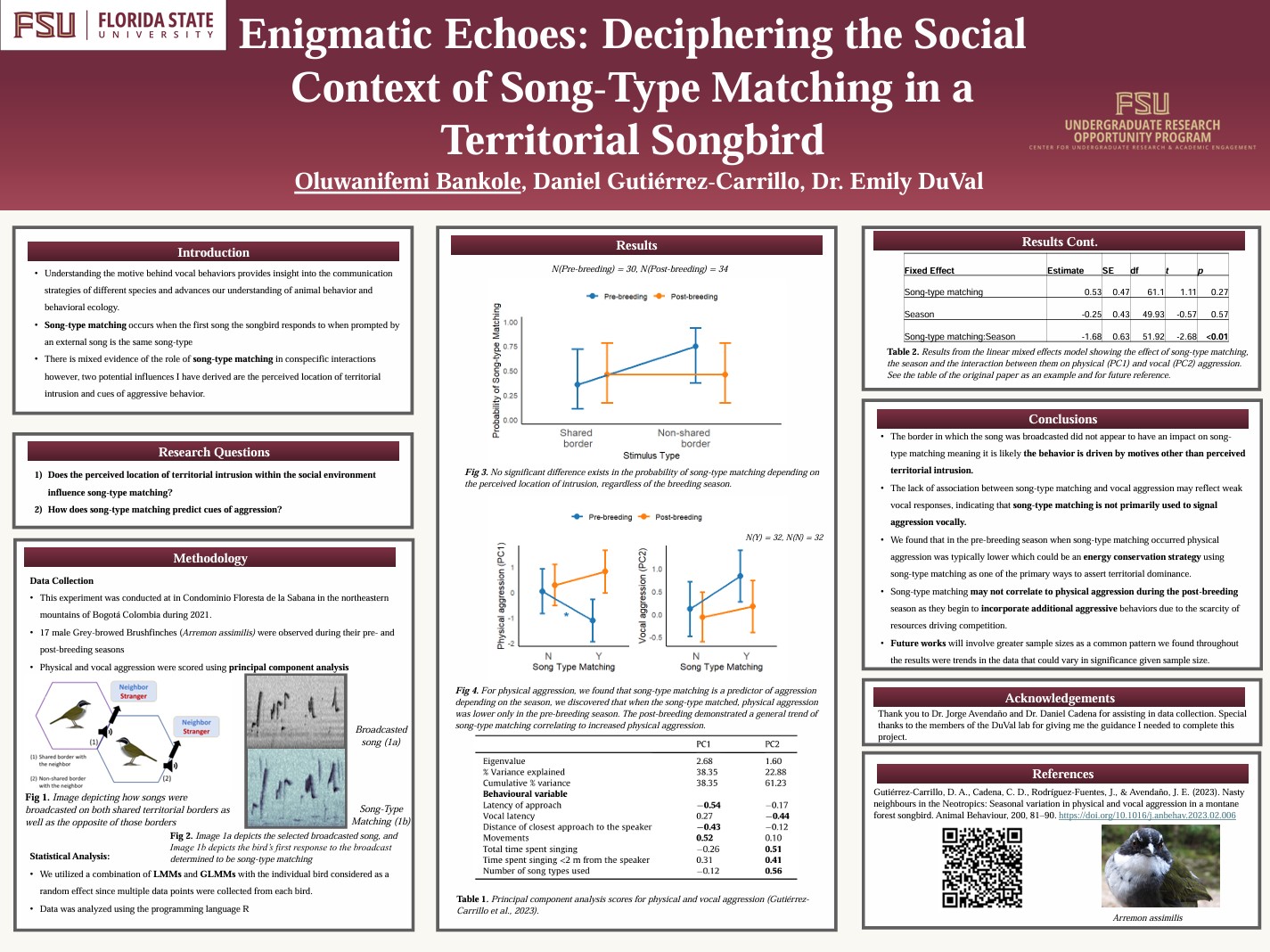Research Symposium
25th annual Undergraduate Research Symposium, April 1, 2025
Oluwanifemi Bankole Poster Session 1: 9:30 am - 10:30 am/ Poster #195

BIO
My name is Nifemi Bankole and I am an undergraduate Biology major from Jacksonville, Florida. I have always had a vested interest in the natural sciences and appreciate the UROP experience for giving me the opportunity to explore it!
Enigmatic Echoes: Deciphering the Social Context of Song-Type Matching in a Territorial Songbird
Authors: Oluwanifemi Bankole, Daniel GutierrezStudent Major: Biological Sciences
Mentor: Daniel Gutierrez
Mentor's Department: Biological Science (BIOLOGY) 074000 Mentor's College: Arts and Sciences Co-Presenters:
Abstract
Song-type matching occurs when a territorial songbird responds to an external song with the exact same song-type. Its social context remains unclear but may relate to territorial aggression. To explore this, we investigated: 1) how social environment influences song-type matching, and 2) whether song-type matching predicts aggression cues. Vocal samples from 17 Grey-browed Brushfinches (Arremon assimilis) were collected during pre- and post-breeding seasons. "Neighbor" songs, shared between birds in adjacent territories, were broadcast at two locations: the shared border (where territories of neighboring birds meet) and the opposite, non-neighboring border. Song-type matching was noted if the bird’s first response matched the same song-type as the broadcasted song. Physical and vocal aggression were scored using principal component analysis. Results showed song-type matching significantly predicted physical aggression. When birds did not match, they displayed no significant physical aggression in both seasons. However, when they matched, aggression was significantly higher post-breeding than pre-breeding. Other tests showed little to no correlation, suggesting these factors are not intrinsically linked. The lack of association between song-type matching and vocal aggression may reflect weak vocal responses, indicating song-type matching is not primarily used to signal aggression vocally. In the pre-breeding season, song-type matching predicted lower physical aggression, but this result was not statistically significant, preventing definitive conclusions. Further research with larger sample sizes or additional behavioral metrics is needed to clarify these patterns and better understand the relationship between song-type matching and aggression in territorial songbirds.
Keywords: Ecology, Bioaccoustics, Communication

